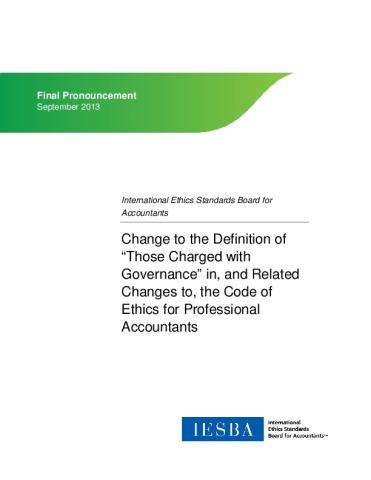Change to the Definition of “Those Charged with Governance” in, and Related Changes to, the Code of Ethics for Professional Accountants
The changes to this pronouncement are intended to more closely align the definition of “those charged with governance” in the Code of Ethics for Professional Accountants with that in the International Auditing and Assurance Standards Board (IAASB)'s International Standard on Auditing (ISA) 260, Communication with Those Charged with Governance, thereby eliminating any potential confusion. The Ethics Board does not expect any changes will be necessary to accounting firms’ systems and methodologies or common practice.
The changes clarify that a subgroup of those charged with governance of an entity, such as an audit committee, may assist the governing body in meeting its responsibilities. In those cases, if a professional accountant or firm communicates with such a subgroup, the Code requires the professional accountant or firm to determine whether communication with all of those charged with governance is also necessary so that they are adequately informed.

